For chefs, epicures, and reality TV fans, Spike Mendelsohn burst onto the scene in 2008 when he placed in the top five on the Emmy Award-winning Bravo series Top Chef. For the Canadian-born, Washington, DC-based chef, that was just the beginning of his rise to foodie fame. Now, at 43 years old, Mendelsohn has appearances on other TV shows including Top Chef: All-Stars and Iron Chef America, and even a hosting gig for Food Network’s Kitchen Sink under his belt. It seemed he was living the dream. But for Mendelsohn, becoming famous was never the end game.
A graduate of the Culinary Institute of America, the chef was indeed passionate about food, but—as he quickly realized—only as a means of social justice. Without explicitly linking eating to such bigger issues as climate catastrophe, world hunger, and food deserts, Mendelsohn simply didn’t see the point.
And so, as organically as he had stepped into the limelight, he stepped into an even bigger role: food activist. Adopting such causes as improving the quality of school lunches, providing equal access to wholesome food, and serving as chairman of the DC Food Policy Council, the entrepreneur became a force to be reckoned with. As his success grew—Mendelsohn went on to become paramount to Michelle Obama’s healthy school lunches initiative—so did his resolve to spend his career using food as the vehicle of change.
One such way Mendelsohn is forging forward with this mission is through the increasingly popular and powerful world of plant-based food. Though not a vegan himself (yet), Mendelsohn seized the opportunity to make a mark with this growing world, co-creating PLNT Burger—a fast-casual eatery that opened in 2019 inside of a Whole Foods Market in Silver Spring, MD and quickly expanded to eight locations and counting along the East Coast.
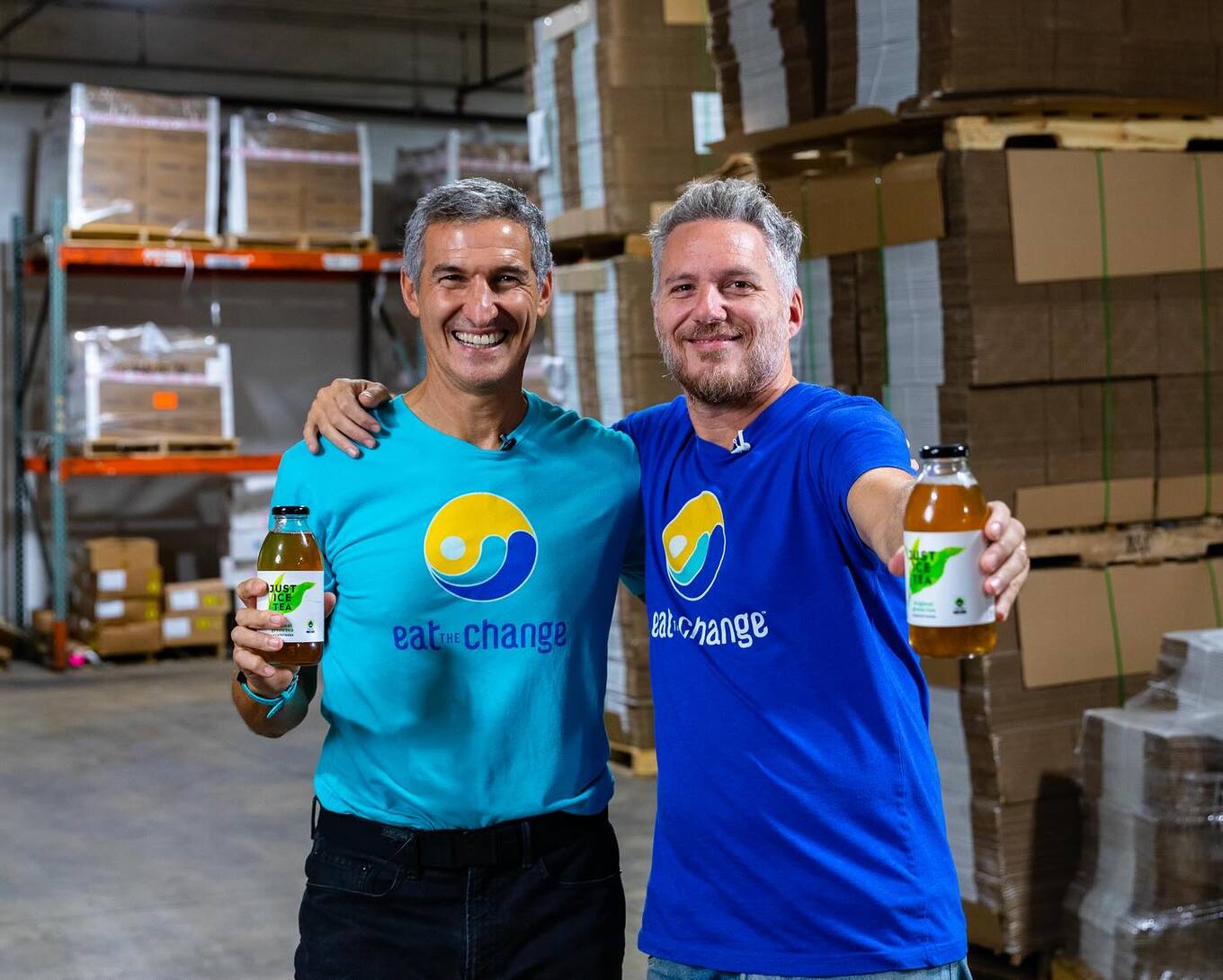 Just Ice Tea
Just Ice Tea
At the core of the success of this brand is a noble mission: “Give people the ability to ‘Eat the Change.’” There is nobody better situated to do that than an all-star chef ready to use his platform to save the planet. VegNews’ Jasmin Singer caught up with Mendelsohn to talk about food insecurity, democratizing plant-based food, and changing the world through burgers.
VEGNEWS: PLNT Burger’s aim is to redefine America’s favorite foods. Why do you think America’s favorite foods need redefining?
SPIKE MENDELSOHN: When you’re looking at our planet, climate change, what’s happening, and all the carbon emissions, it’s enough data to make a good argument for why we need to redefine. The problem before was that we couldn’t make those foods delicious enough or have the right type of textures to produce a delicious experience for people. A lot of people’s food preferences come from food memories as a child—there’s a reason adults go for the Big Mac; it’s because there’s that flavor profile that connects with their brain. What we’re doing at PLNT Burger is putting forth not only a more delicious burger for your body, but one that also considers the planet and the environmental footprint on what it takes to get that burger to the plate.
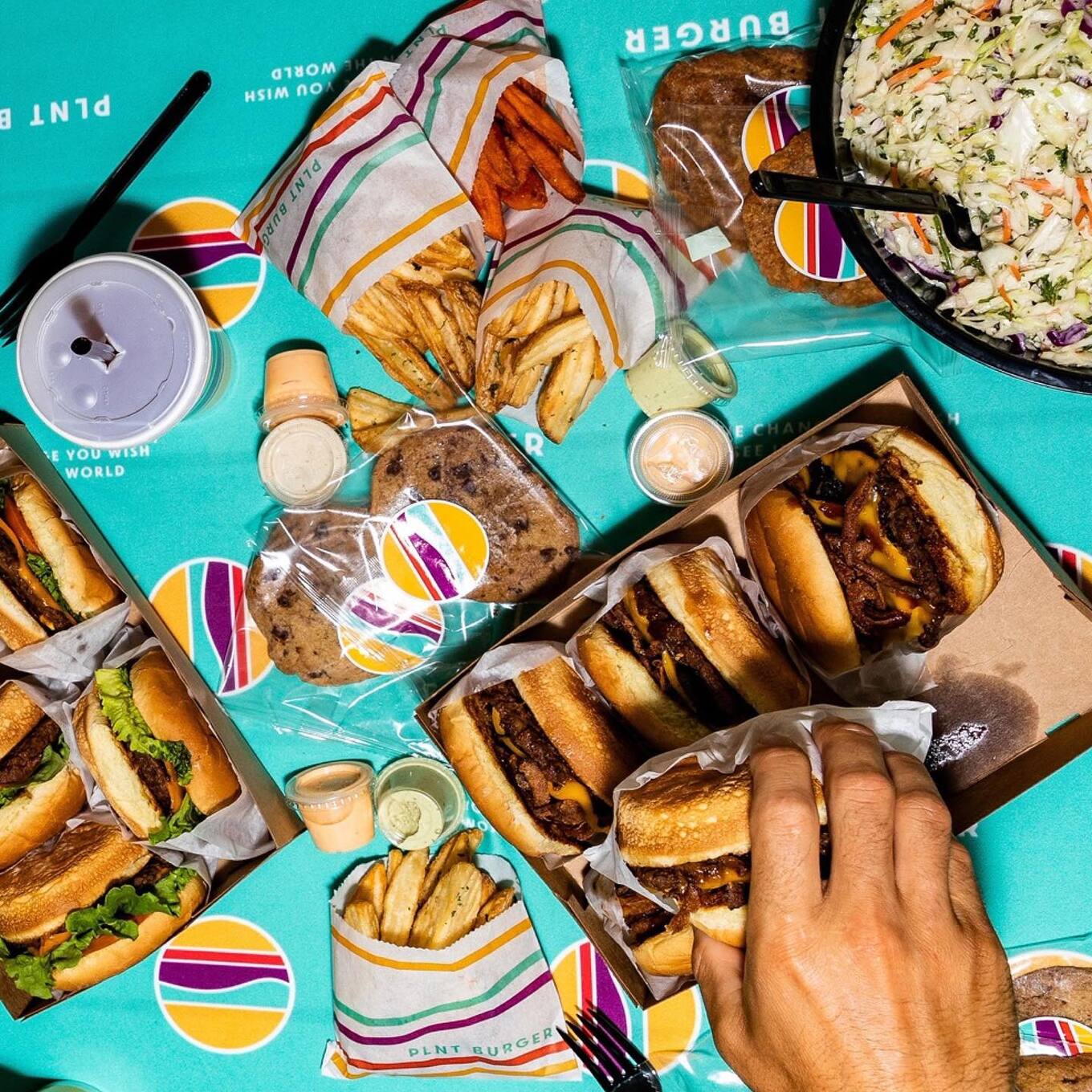 PLNT Burger
PLNT Burger
VN: What do you mean when you say we need to “democratize” plant-based foods?
SM: Restaurants have to make a living, right? But when you see a burger for $12 to $14 to $18, the plant-based movement looks like it’s for the rich or for the people that can afford it. That’s completely not what we want to do. We want everybody to enjoy it at a reasonable price. We want to have a real answer to this.
VN: What does it mean to be a “planet-friendly chef ”?
SM: I think where we are right now is an imbalance, and that’s why we’re seeing all these things happening with climate change; we just need to fix the balance a little more. That’s why, when I referenced the huge shift happening in the food system, it’s not only on menus, but how we’re sourcing it. How is it traveling from point A to point B? We’re starting to look at carbon emissions in a really big way and how you can offset them.
VN: And in that same vein, why is food waste a problem?
SM: There are a ton of homeless people walking around without a meal. We waste about 55 percent of the food we produce, plus with all that goes into producing that food, that’s a really, really huge number. There’s definitely a fix there. My answer to curing food waste is, one, get the big companies in on the effort. And, two, the solution also lies in the sum of many little small tweaks in people’s daily lives.
VN: What kind of tweaks?
SM: At Eat the Change, we launched the Incredible Planet Challenge, which is 21 days of little tasks. Use plant-based milk instead of dairy milk, or use a reusable bottle instead of a plastic bottle. Make a meal out of leftovers to cut down on waste. There are all these small little tweaks. Even bruised fruits, right? People may not know, but sometimes they’re the best ingredients to use because the sugars have caramelized.
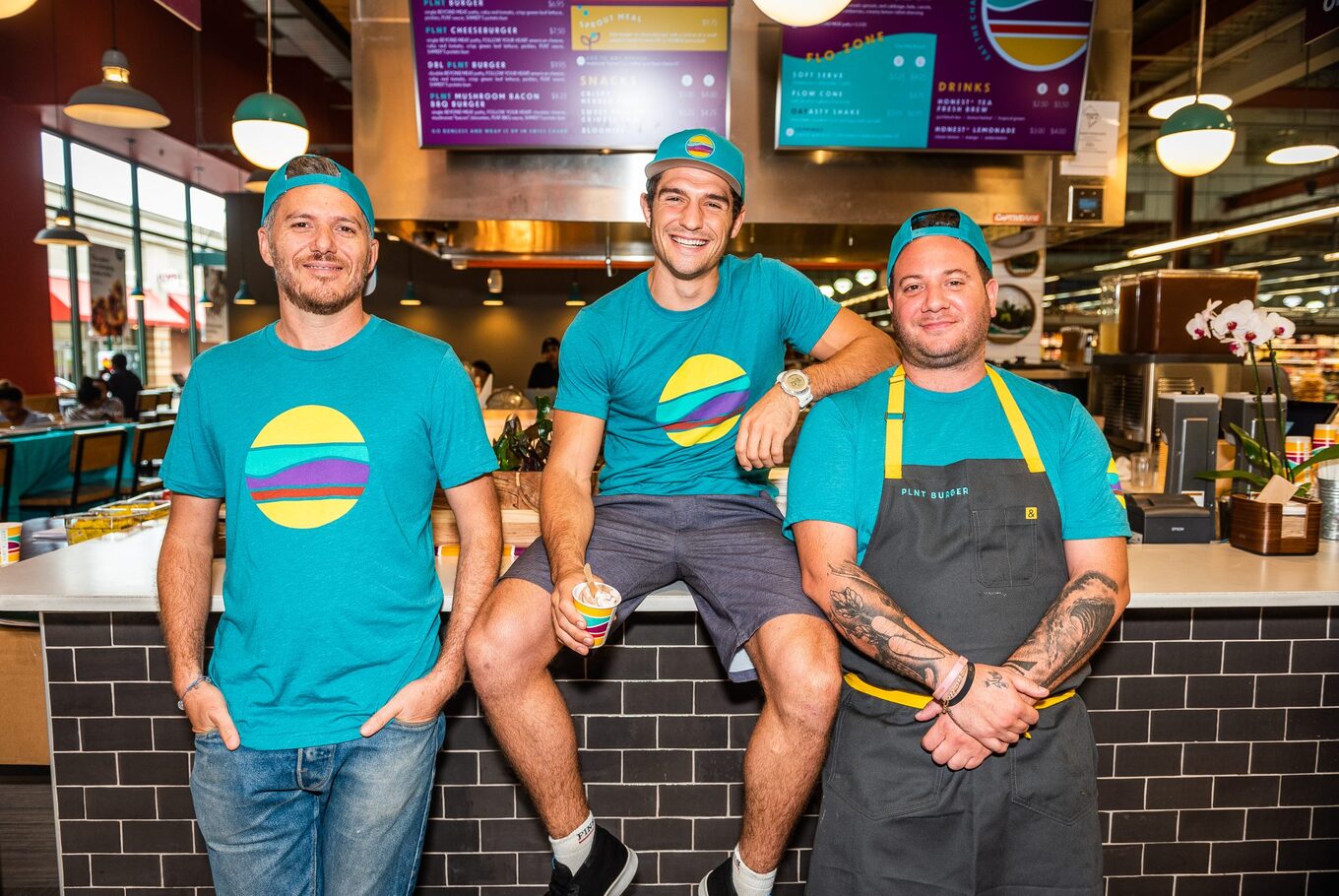 PLNT Burger
PLNT Burger
VN: You’re clearly very driven to help affect change. But in your line of work, do you ever have to compromise your beliefs?
SM: For me as a chef, it’s really hard to stay in business and [do exactly what] you really want to do. Because of the way the demand is in the market, most restaurants can’t just afford to go local or sustainable or organic. All that stuff is really expensive. Maybe part of your menu has a sustainable this or an organic that, but a lot of the other stuff just falls with whether you’re getting stuff from Sysco or you’re getting stuff from US Foods. I had a hard time having to run these restau-rants and knowing I was doing only 40 percent of what I’m trying to preach. I wanted us to dig in deeper, and that’s why I’m so happy with where I am right now—because through PLNT Burger and Eat the Change, the sourcing is totally on-point and it’s 100-percent tangible for people.
VN: In the past few years, you’ve completed an entire month of plant-based eating during Veganuary. What did that feel like?
SM: It felt great. It felt light. Making that commitment for that month is really good because it’s enough time to get a bit of a reaction back from your body. It’s just right around the amount of time where you can tell. [By the end of the month,] I was like, “Oh, this kind of worked for me.” You get enough data back on how you’re feeling every day. It’s not that difficult anymore.
VN: Do you think you’ll ever personally make the switch to fully plant-based?
SM: In my household, we’re about 65- or 70-percent plant-based. My wife is 100-percent. But this is the kind of balance I’m talking about. We won’t become a nation, definitely not in our lifetimes, of just vegans or vegetarians. As days go by, I’m getting closer and closer to being vegan or vegetarian. I don’t try to label it too much or think about it. I mean, dairy to me is something I thought I’d never go away from. One of my favorite things was dunking Oreos and chocolate chip cookies in milk. But Oreos are vegan; that blew my mind when I found out! Oatly and Ripple and these plant-based milks, they’re just delicious, and I feel good when I drink them; they don’t mess up my stomach. I don’t know if I was partially lactose-intolerant or not, but I’ll never go back.
VN: What do you hope for in this better world that you want to help create?
SM: I want to see us come together a little bit more on the common things that we share in the world, and [that] is definitely food and the wellness of our planet. Let’s at least respect each other and realize that we don’t own this planet. It’s not here to be abused. It’s not here to mess around with. We’re here to be part of this planet at this moment in time; if only we could just start to get the ship going in the right direction. I think if you eat the right types of foods, you’re going to look at the world a little bit better, a little differently. If you start to develop respect for the planet, you’re going to start to develop more respect for human beings as well.

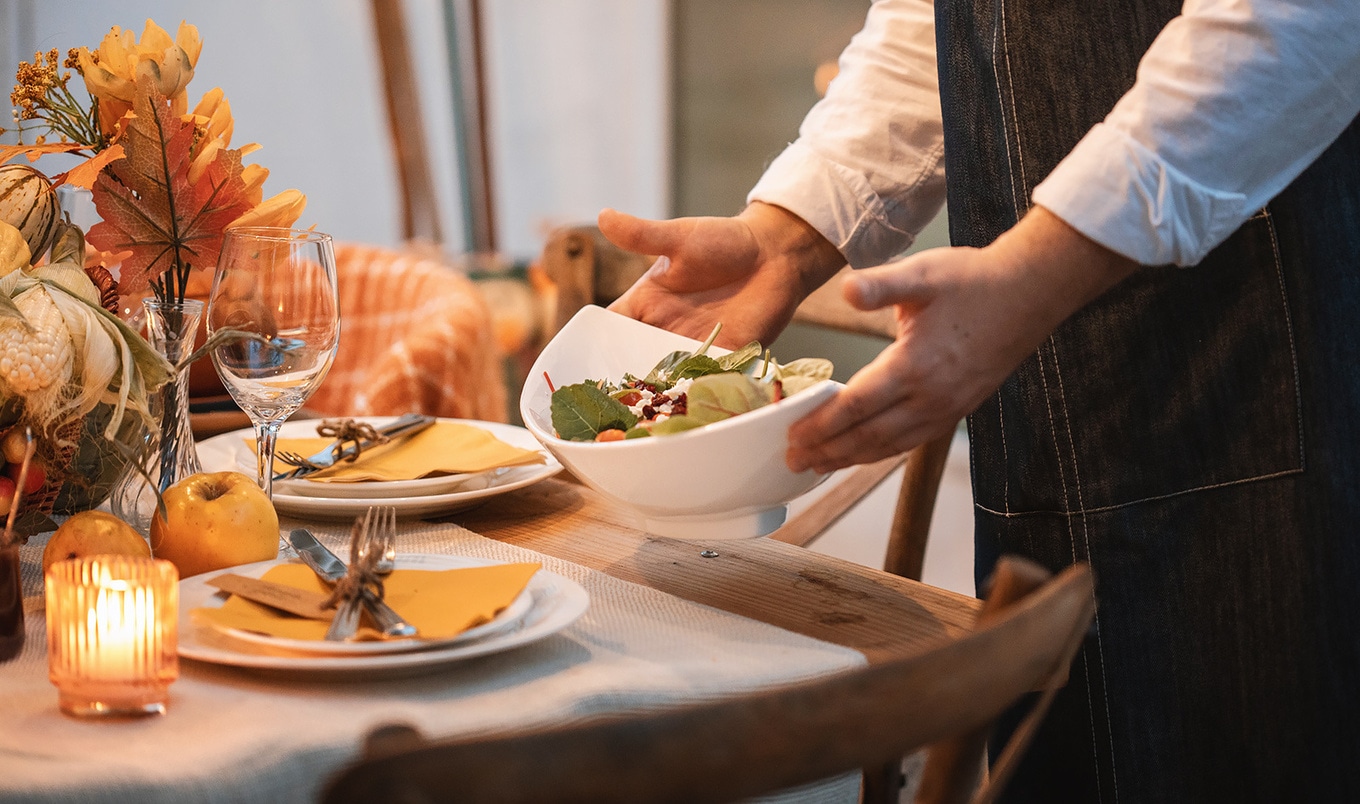
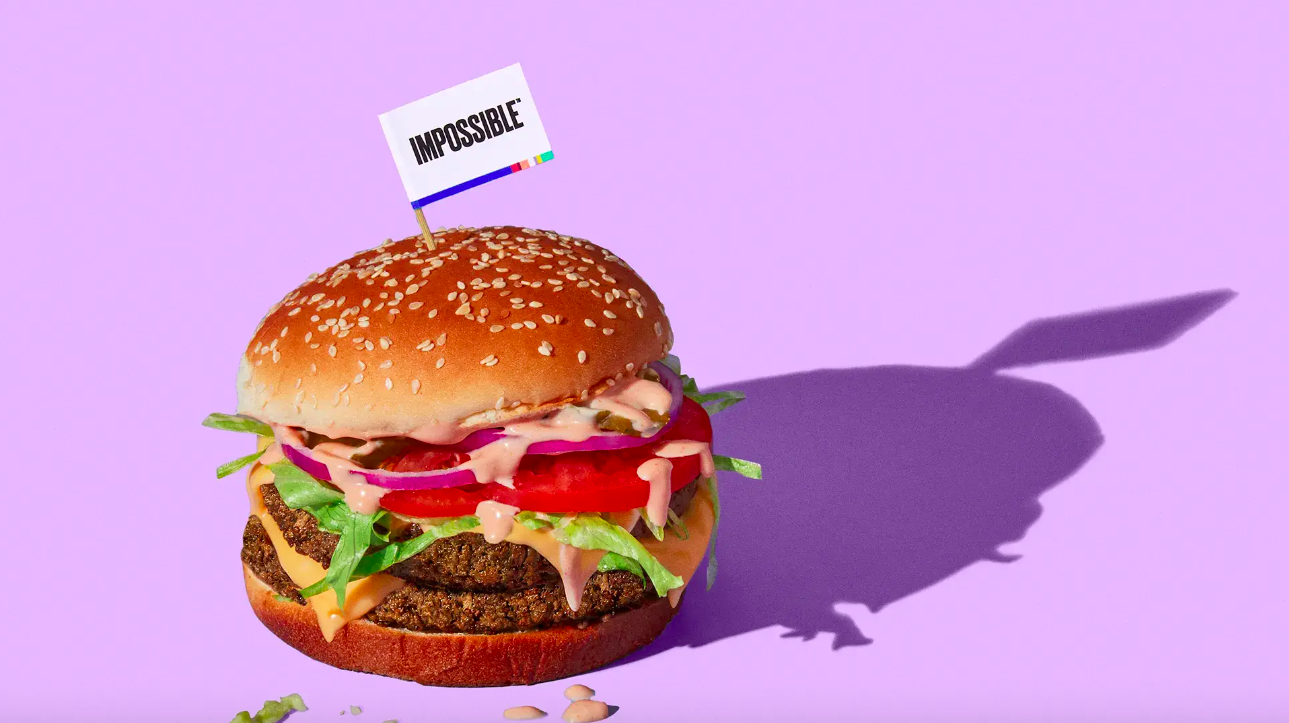
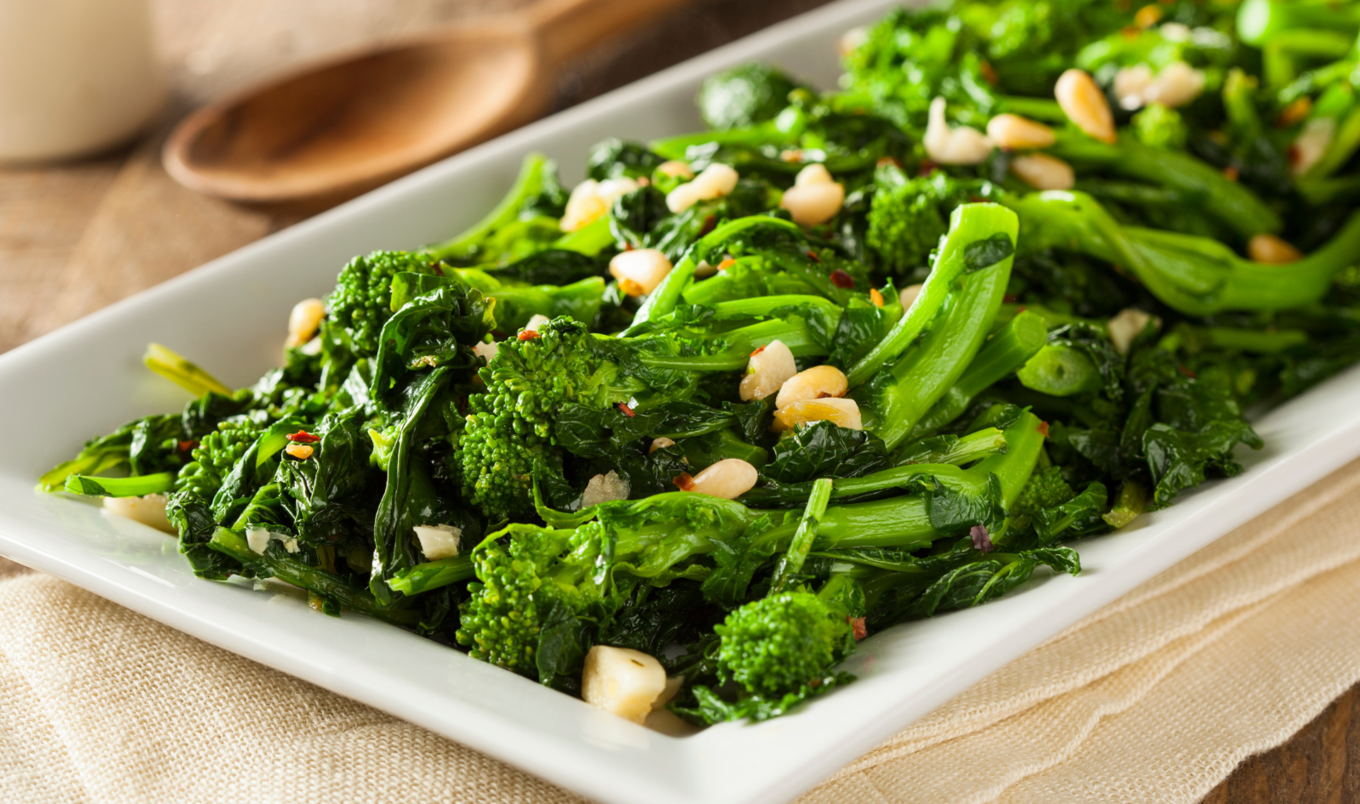


.jpg?sha=1491c255b49d3e03)